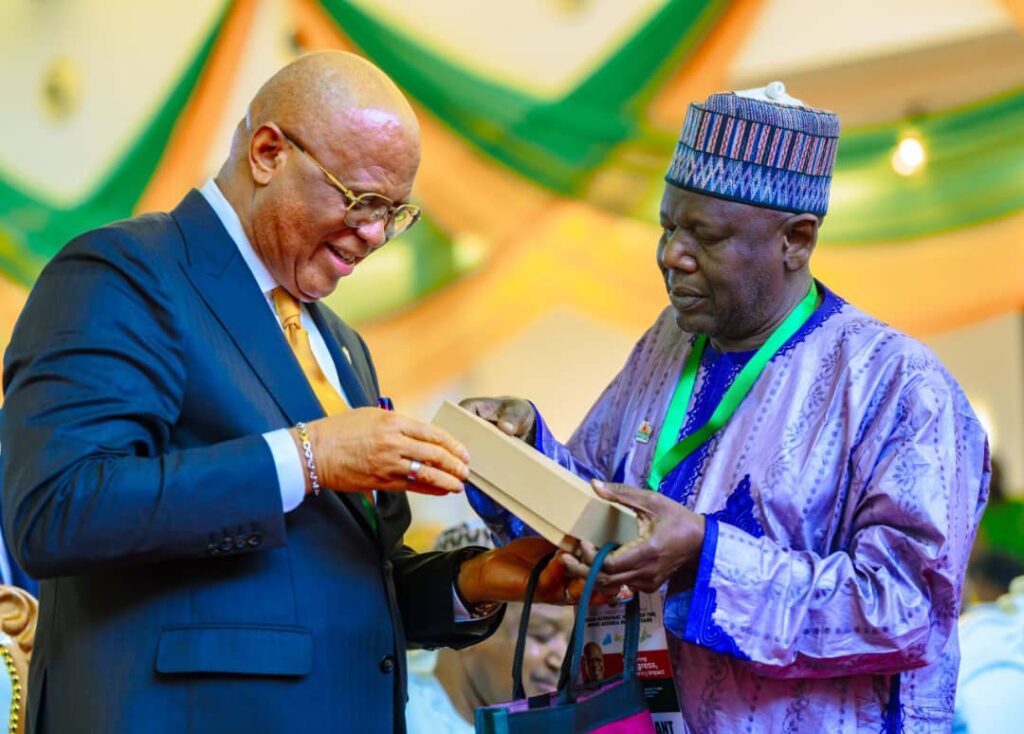The Nigerian Governors’ Forum, on Thursday, honoured Akwa Ibom State Governor, Umo Eno, as its new 2025 Governor of the Year.
According to the Forum, the award recognises Eno’s leadership, transparency, and accomplishments under the ARISE Agenda.
New Telegraph reports that Governor Eno received the award during the public unveiling of the Socio-Economic Impact Assessment of the ARISE Agenda in Two Years at the Banquet Hall, Government House, Uyo.
Representing the NGF Director-General, Alhaji Abdullateef Shittu, Prof. Abba Gambo praised Eno’s leadership, noting that Akwa Ibom ranked highest in governance, fiscal discipline, and developmental achievements.
“In a State-by-State comparative analysis, Akwa Ibom came out top,” he declared.
He, however, added that “It is therefore with great pleasure that the Nigerian Governors’ Forum presents this award to His Excellency, Pastor Umo Eno, as the Governor of the Year 2025,” he said
READ ALSO
The Forum lauded the governor for delivering an extensive list of completed and ongoing projects across various sectors, all without relying on bank loans or external borrowing — a rare accomplishment in Nigeria’s present economic landscape.
In his address, Eno dedicated the award to the people of Akwa Ibom State, reiterating his administration’s commitment to transparent, people-centred governance.
He expressed gratitude to the NGF for the recognition, stressing that his administration’s achievements stem from prudent resource management, institutional reforms, and a well-defined development roadmap anchored on the ARISE Agenda.
“This recognition is both humbling and encouraging. We will continue to use the resources of Akwa Ibom State to work for Akwa Ibom people—building infrastructure, empowering communities, and shaping a more prosperous future.”
The occasion included policy assessments, expert evaluations, and detailed presentations highlighting the state’s developmental strides over the past two years.
Attendees comprised Federal Government representatives, ministers, economists, development partners, civil society leaders, and members of the press, many of whom praised the state for opening its records to public scrutiny and independent review.















